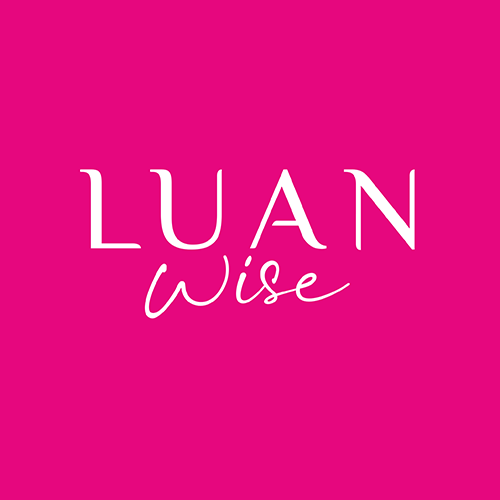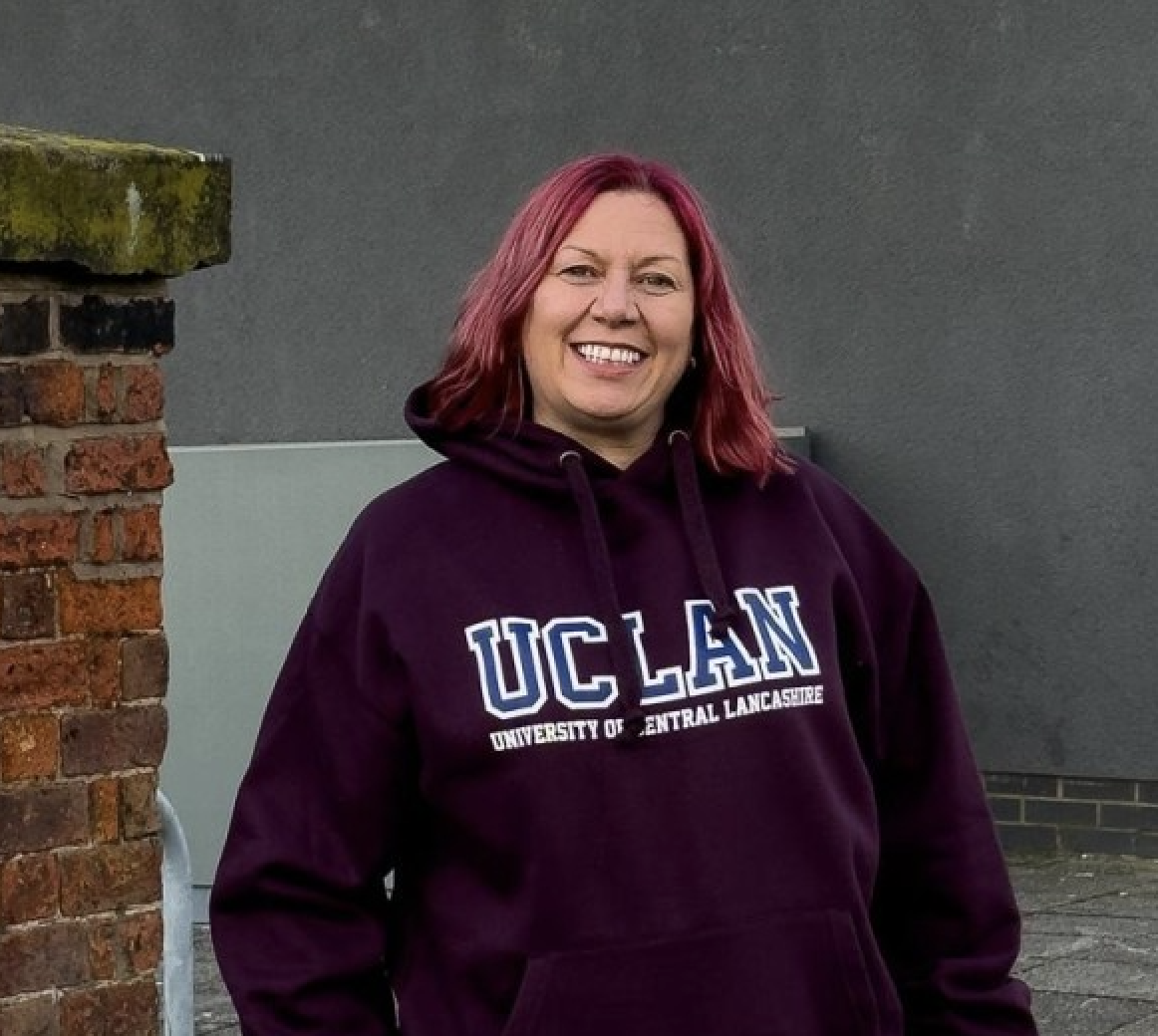I’m now six months into my PhD journey – and I genuinely believe it’s one of the best decisions I’ve ever made. The timing felt right in my career, I was ready to embrace the challenge, and I can already see the positive impact it’s having on my thinking and practice. It’s pushed me to step out of my comfort zone, ask deeper questions, and approach my work with a more critical and curious mindset.
From the moment I posted on LinkedIn, I’ve had so much support—and plenty of questions. So, I thought it was time for an update (and yes, I did buy my university hoodie in advance of a campus visit because I knew I’d want a pic – you can put the person into academia, but you can’t take her out of practice!)
Here’s a look at what the first six months have involved, and how I’m managing my research alongside work and life.
Why a PhD?
I’ve been doing more guest teaching in recent years, and I love it. It’s something I’d like to do more of, but when I’ve investigated opportunities for more formal teaching roles, I realised that a master’s degree is often included in the list of ‘desirable’ requirements —and I don’t have one. I’ve completed postgraduate marketing qualifications and achieved Fellow and Chartered Marketer status with the Chartered Institute of Marketing, but not a full Master’s. From time to time, I did a bit of Googling, but to be honest, the traditional master’s courses I found didn’t really appeal to me. The options available felt like I would be doing it just for the piece of paper, which made it hard to justify the expense and time.
Then, last summer, over coffee with an academic friend, I was updating them on my work and writing projects when they encouraged me to look again at research-based (rather than taught) options. So, I Googled again, sent a few emails to contacts, and arranged a call with an academic team to discuss what might be possible.
During that call, they suggested something I hadn’t ever considered: a PhD.
Not just any PhD, but one that aligned with my existing body of work. The ‘PhD by Portfolio’ route would allow me to build on my experience and support my day-to-day consultancy and training work, rather than being something very separate. It felt both exciting and achievable.
What is a PhD by Portfolio?
A PhD by Portfolio is designed for professionals who already have a significant body of work that contributes to their field.
My PhD by Portfolio is built around three key pillars.
First, my publications will form a major part of the portfolio. By the end of 2026, I will have written and published eight books, and, after I complete the book manuscripts, I will be seeking to write peer-reviewed journal articles (if any academics are reading this would like to collaborate – send me a message!)
Another pillar is my professional practice – consultancy and training – which brings my marketing practitioner experience and application into the academic space through evidence of impact and reflection.
The third pillar is a live project that follows the more traditional PhD route of research and thesis writing. It’s scheduled for 2027 in my project plan, but it’s constantly on my mind as I scope out the key topic areas I’m looking to explore.
Finally, all of these elements will come together in a synoptic report – a reflective piece that connects my work and experiences, showing how they contribute to the field. It’s a valuable part of the process, especially as we so rarely take the time to stop and reflect. Taking a step back allows us to recognise patterns, measure progress, and gain clarity on what we’ve learned and where we’re heading.
What’s shifted over the past six months is the way the PhD has started to wrap around my day-to-day work, giving it more purpose (something I didn’t realise I was missing). I’m thinking more critically about what I do and how I do it. It’s really helped sharpen my focus. I’ve become more intentional with my time, saying yes only to the opportunities that align with my research and professional goals (which, I’ll admit, isn’t always easy!).
The Application Process
While a PhD by Portfolio is not widely available, I looked at several university websites and options before making my application, and I could not be happier with my choice of studying at the University of Lancashire (currently rebranding from the University of Central Lancashire).
From sending an initial email enquiry to find out the best contact, to a Zoom call with my now Director of Studies, Dr. Philip Stone PhD MA BA , what stood out to me was the friendly and open approach to the opportunities, and how we could take this journey together. I’ve come across plenty of supervision horror stories, and I feel confident that I’m in safe and supportive hands with both Phil and my supervisor, Dorota Marsh.
The initial application process involved outlining the scope of my work to date and my research interests. It’s not just a case of listing your CV-type experiences – it’s about showing how everything connects, how they matter, and how you’ll develop them further. This exercise was hugely valuable, and also one of the hardest documents I’ve written in over 20 years! The challenge of a new academic writing style and backing up every point with evidence is something I’m enjoying learning.
After my written application, I was invited to interview. A thirty-minute Zoom call which – to my surprise – focused more on my intentions to study, how I would manage my time etc, rather than questions about the initial literature review for which I had prepared. If you’ve ever met me, you will know that organisation and time management are my forte; I love a colour-coded spreadsheet and project plans!
I felt confident the call had gone well, and this was confirmed within 30 minutes via email with an acceptance. The speed and nature of the email again confirmed I was making the right decision with the University of Lancashire.
The First Six Months: Settling In
The first milestone was set for June – Research Programme Approval. This requires full documentation of my intended research question, objectives and details of how each of my pillars will contribute. It also required building a personal training plan and timeline. I’m aiming to complete it within three years.
I’m the first person in the University of Lancashire’s Business School to pursue a PhD by Portfolio – no pressure!
I’ve fully embraced the programme of post-graduate webinars, attending as many sessions as possible, across a mix of topics – from critical thinking to research methods. I’m usually on the side of delivering webinars, so it’s been interesting and valuable to be on the learner side.
Here’s my two favourite pieces of advice:
- Find time to be bored; it’s important to have time for your mind to wander
- Read like a hunter, not like a sponge
So much has changed since my undergraduate degree. The online tools now available are extensive, and Mendeley (a reference manager tool) are my new guilty pleasure. Most of all, I love having a personal librarian contact – thank you, Victoria Martin! We’ve had some great conversations about resources, and receiving new emails with useful links and check-ins simply makes my day. The wellbeing support is outstanding; I’ve received welcome calls, received regular news updates and know what support is available via student services should I ever need it. I’m comfortable with sending messages with questions, and they are always answered promptly and with kindness.
I’ve discovered group support with other PhD by Portfolio students, who arrange a monthly Teams session. I’ve also searched social media for PHD topics, and thanks to DMs, found some wonderful new peers to engage with throughout my studies.
For the first six months, I’ve been focused on my ‘publications’ pillar. I’ve built a website and completed the manuscript for Marketing & Psychology with Tom Bowden-Green, and I’ve secured two new book contracts. So, I’m still writing, and my next submission deadlines to publishers are set for December and January (details of these books coming soon!)
Managing My Time (and Protecting My Mondays)
The best decision I made early on? The answer I gave in my application interview. Mondays are PhD / writing days.
Unless something urgent comes up, I avoid scheduling client calls or training sessions on Mondays.
It’s my deep work day. And because I’ve carved out that time, my weekends are now free from last-minute Sunday prep. I’ll be using weekends as I get further into the PhD, I’m sure, but for the first six months of 2025, I’ve used Fridays to finish up on work admin and weekends for creating mental space (and planning a relocation, but that’s for another blog)!
As part of the process of reflection, I’m keeping a journal, and I’m learning that pursuing a PhD is as much about tenacity and resilience as it is about curiosity and learning.
It takes time – there are no shortcuts to this journey, even with the ever-growing AI productivity tools that keep appearing in my social feeds.
What’s Next on My PhD Journey?
I passed the first milestone; my research programme has been approved, and I’m now working through my project plan. I’m reflecting on my work and writing every day.
Doing a PhD part-time, by portfolio, is a unique experience. It’s challenging, rewarding, and confidence-building.
I want to acknowledge that I’m in a privileged position to be able to do this, but it’s also something I’ve worked hard to make possible. I’m self-funding the PhD*, which has meant making conscious decisions about how I manage my working patterns, energy, and income. I’ve chosen to invest in this because I believe in the long-term value of the work and the learning that comes with it.
I’m also lucky to have the support of my incredible husband, who, without me fully realising it, manages everything behind the scenes so I can retain my work focus.
There are many others in academia and practice to thank for offering their support – you know who you are, and I will be coming to you soon…
If you’re an industry practitioner who’s written, created, or delivered work that’s made a difference, and you’re itching to dig deeper into the why, a PhD portfolio route might be worth exploring.
And if you’re already on this journey: protect your study days, celebrate each step and let me know if you would like to talk.
*I have been asked a few times about the cost of a PhD. There is an annual fee which for 2025 is £2,500 (part-time UK student), which can be paid across three instalments. Compare this to the cost of some other qualifications and the resources and support available, it feels like incredible value. Plus, I’m well on my way to offsetting some of the cost thanks to a student discount card!

